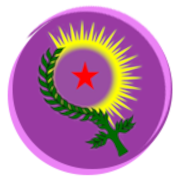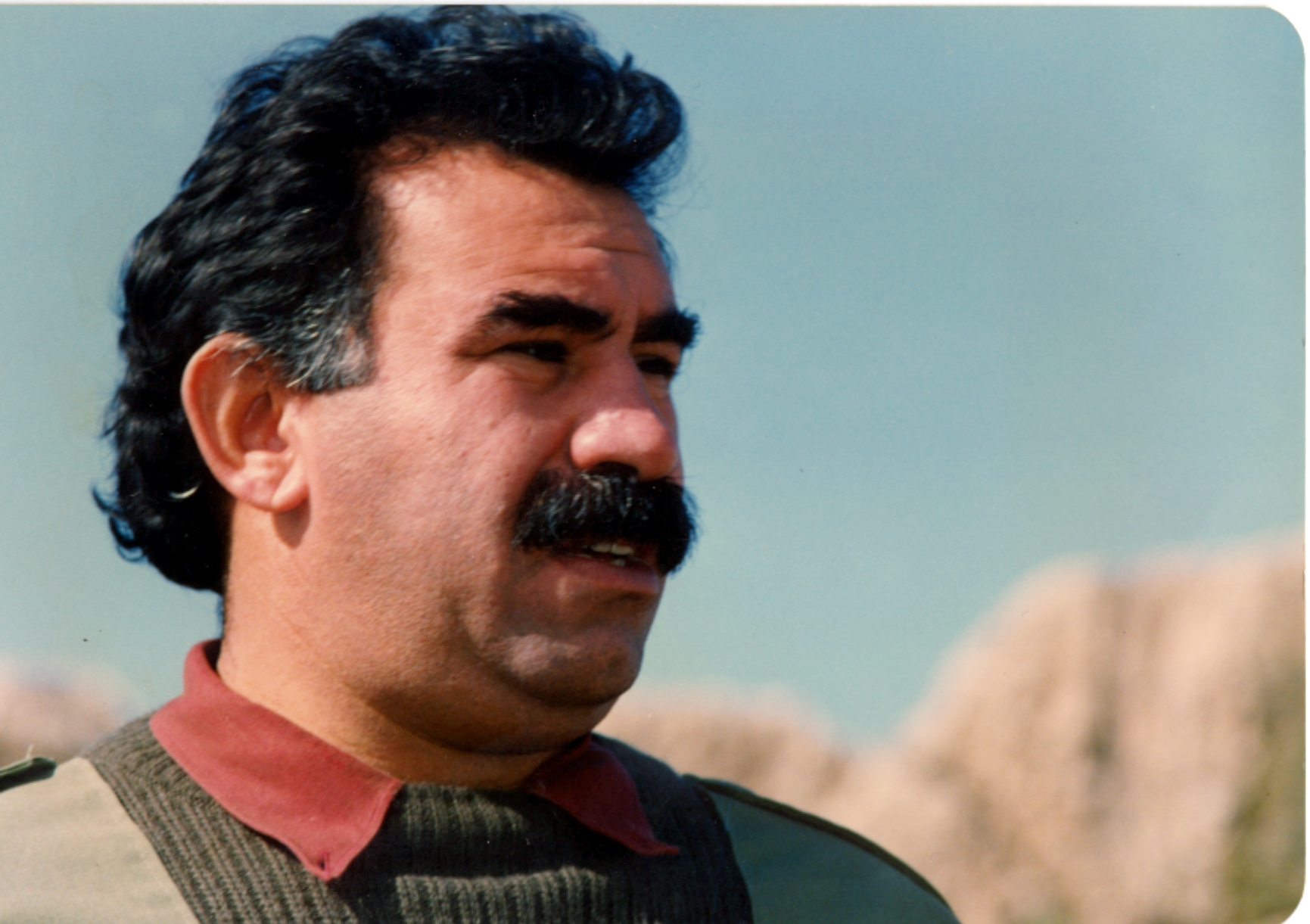Analyzing Woman And The Family Means Analyzing Life
We know much better now that without demonstrating the necessary openness and will to solution regarding this issue, we cannot develop the revolution on all levels in a solid way, from its objective foundations to the aspects relating to consciousness and organization. In fact, one can say that in our societal and national reality, as well as the Gordian knots that these tie in the personage of the individual, are the achievements of humanity over the course of the history of civilization. The unbarable life conditions that form the foundations of this destruction and the desperation, defeat and other natural outcomes of these, such as hopelessness and feelings of impasse, have come to be the most defining feature of life. Without a doubt, many fundamental issues were brought up with the emergence of the Kurdistan Revolution. With this, issues such as the individual, family, tribe-clan, religion and culture are related to the shortage of conditions or the inadequacies around mobilization in the political or military realms. All these matters are better understood if their cause/effect and contradiction/relation is understood through their positionality inside the fire of the revolutionary struggle.
The suffocating affect of life in Kurdistan is reflected above all in the context of the family and the captive status of women within it. Considering the phenomenon of woman by analyzing situations in a superficial manner or in a way that loses sight of the essential things by focusing on particularities will amount to erroneous approaches and stances. That is why capturing the reality in the barest and most essential way carries great importace.
“Kapital” wrotea with an analysis of commodity. If we consider the aspect that women have been turned into the commodity of commodities and realize that this is the case in our society as well, it is obvious that there is an urgent need for further analysis. Analyzing women and the family as the site that especially shapes them, in a way amounts to analyzing life. The cultural and economic sphere of life is just as important as the political and military sphere, just as history should matter as much as the future when trying to take imporant steps towards what is right.
No matter how we or where approach it, just as important it is to reveal women’s issues, inadequate or broken approaches will lead to failure. Even worse, covering the issue, closing ones eyes towards the issue will not only prevent us from reaching our goals, but will in fact keep what we perceive to be a revolutionary process at a highly insufficient stage. If we want to carry revolution to a rich content and thus bring about meaningful freedom, then it is important to put emphasis on women; seeing her enslavement is just as important as demonstrating her meaning and importance on the path to freedom. Furthermore, to move women to action and realiye freedom, they must be able to brought to a position, be made to fight and live. To secure this, responding to the revolution’s most fundamental societal aspect, means to secure freedom totally, to deepen and to play a role for the solution of many other issues in society – more than ever. More clearly than before, the revolution, led by the PKK, makes the rights steps towards this development.
In our women’s liberation efforts, which see intense participation and reveal realities in a much more realistic manner in the conditions of war, steps towards a congress are being made. Without a doubt, these sorts of efforts carry sublime meaning. Just as the most advanced thought and theoretical approach, it is important to take a practical approach to freedom. To this end, in addition to great levels of discussion one should also create the opportunities to allow healthy behaviors to take root. A congress can do justice to its role, if it fulfills its necessary function. It is clear that only in our party is there no narrow approach to the solution of women’s problems; in fact, we try to give a contemporary answer to today’s difficult social family problems. With this, alongside the historic aspect, this is also a quest for comprehensive answers to healthy life questions for the future. If a revolutionary women’s congress can be concretized within the Kurdistan revolution, led by the PKK, it will amount to a necessary answer to our current level.
If the PKK’s theoretical as well as practical war reality is reflected in the woman’s struggle, such a congress would cover the future only to the extent to which it also covers the contemporary; it would encompass the rigorous evaluation of the day as much as it evaluates the past, and it would be able to analyze to the extent to which it can determine aims and duties and turn these into concrete organizedness and action forms. This would create debates and decisions and combine our current struggle with action in a manner that will reach an attitude, a leadership.
If we look at PKK history, we can evaluate the level of theoretical, ideological and political developments in a manner that is intertwined with the multifold practical struggle and war situation. The theory-practice unity shows a development that only befits such a revolutionary party, and this unity of theory and struggle creates the opportunity to come up with a healthy approach and solution to any problem.
This applies even more to the issue of the liberation of woman and family. The way in which we theoretically approaches, analyzes and seeks to find liberationist solutions to the question of women and the family cannot be compared to other parties. This is not seen as sufficient, and more women are joining he ranks and participate in all levels of the fight. To ensure the best method, attention is paid to both exposing the problem and responding to its solution with the woman as the subject.
Beyond the Middle East, too, it is hard to claim that the leadership in most contemporary countries have any approach to the issue that is theoretical, planned and based on practical fighting power. The PKK managed to do this to an extent. At least the approaches in the fundamental political-social content of the Kurdistan revolution, and developments in many aspects, show that fundamental questions are being grasped in a creative and positive way, which already draw attention and resonate nationally and internationally. Just as we feel the need to fully understand and grasp the PKK, its leadership reality and all other aspects; the same stance is required not only regarding woman and family, but also the other, inseperable side of the issue that is in relationship and contradiction with it, namely analyzing the men’s issue. As much as the theoretical apects, it is also important to point out the reflection of the psychological developments in concrete life. This issue is a reality that is deeply connected in the national annihilation and societal alienation. Here, too, the effort that is made is more than just a political evaluation, when one tries to capture the features, relations and contradictions not only of a source of life that is denied, but also all its features.
We present it as a fundamental stance, the fact that a life topic that in many parts of the world has been engaged and developed through literature and art, is thematized in the midst of war in our case. For a wide variety of known reasons, the solutions of other nations towards the women/family issue and other social problems, which they brought about through centuries of revolutionary art, have to be treated in our case through bare, organizational, political, and military efforts in an intertwined and mutually influential manner. This is related to the current level of colonialism and the degree of plunder through exploitation. As a result of this, it is of utmost urgency to consider it and solve it alongside all sorts of revolutionary activities.
Our historical, societal, and political realities, including the levels of national annihilation and exploitation, do not allow us to do what other nations have artfully been able to do over the course of centuries; this forces us to do this by way of revolution. Thus, untying the Gordian knot of the social issues of woman, the family and all of society becomes possible in the fire of war. This is the most fundamental feature of our revolution. It is a direct result of being separated from history and cut from one’s connection to the era. Our party understands the issue as being connected to this concrete reality and believes that its solution should come about in this spirit as well.
After having roughly defined our method, it is useful to take a look at the theoretical and practical developments that we achieved up to this date. It is important to keep in mind that no societal problem can be turned into healthy practice without solid theoretical perpective. Therefore it is clear that beyond the blurring of consciousness on all levels, in Kurdistan, identity is being transcended. The annihilation of all national-societal aspects means that theory obtains an even greater role. Because reality has been destroyed, both in the realm of consciousness, as well as by way of the materiality that this consciounsess is based on. To the degree to which this destruction is advanced, insistence on theory becomes all the more necessary. It is clearer now why the PKK’s approach to theory derives from its concrete reasons. That for a long time, theoretical activities and ideological-political efforts have been continued with such insistence has to do with the fact that our reality does not resemble any other societal or national reality. Our reason for giving such high theoretical-ideological and political importance to the women and family issue is due to this, and in fact, we are in need of further developing the need to grasp the entiret of the issue. In general, defeat and suffocation in darkness are experienced more deeply in this realm. Therefore if enlightenment and solution are desired, the power to grasp and the principled development of practical steps should be seen as a revolutionary duty. In this sense, it does not make much sense to get stuck by looking at practices in other countries and wonder “why does it not happen there, but here”. The concrete, existing conditions define understanding and provide practicability to principle. And that is what is done!

